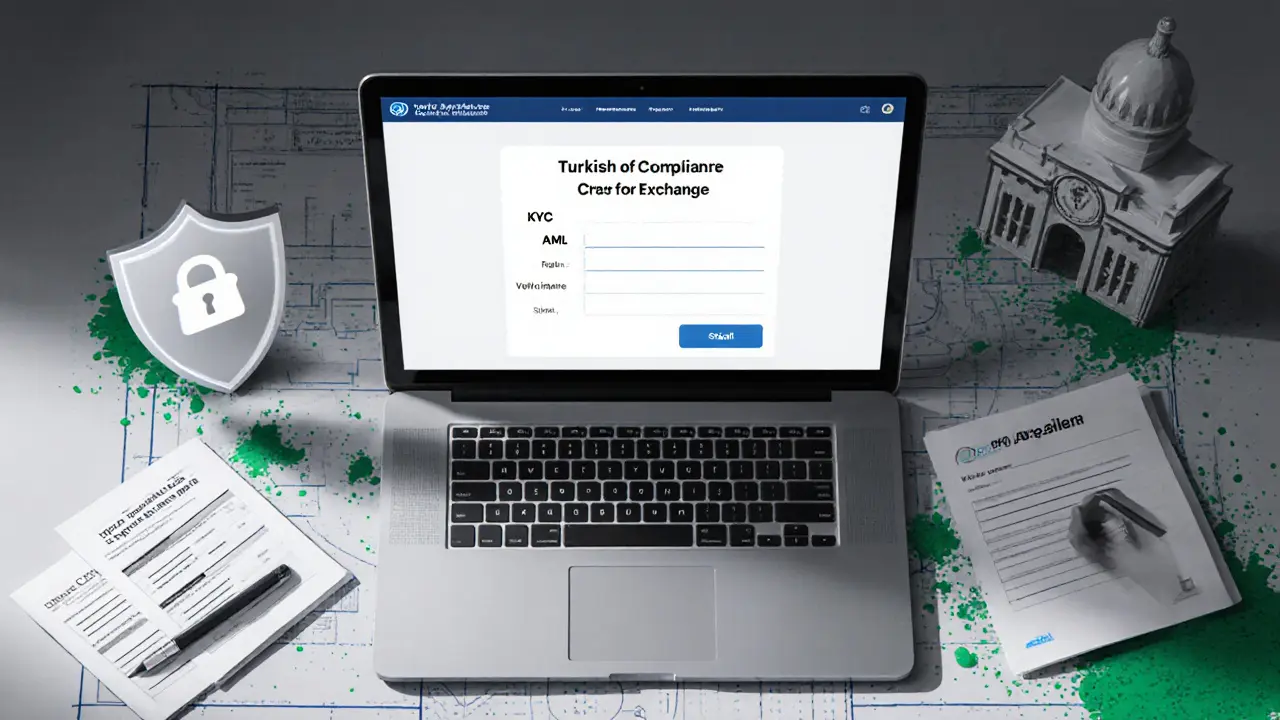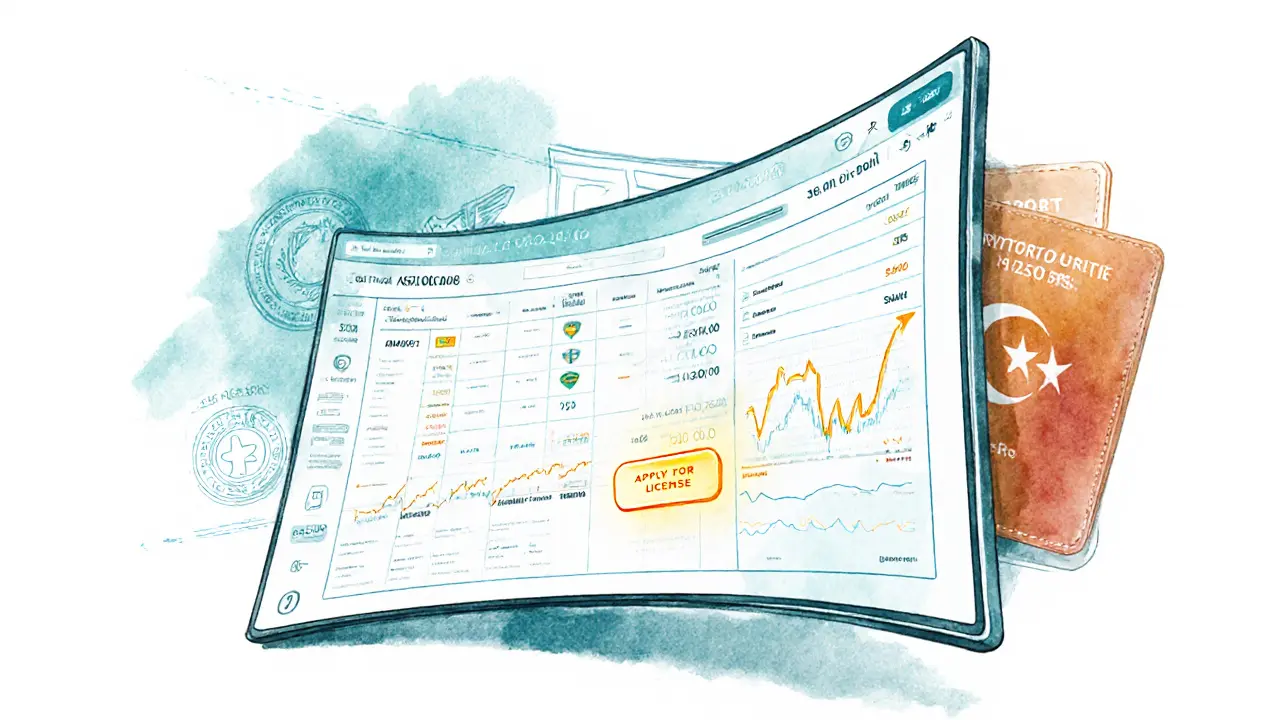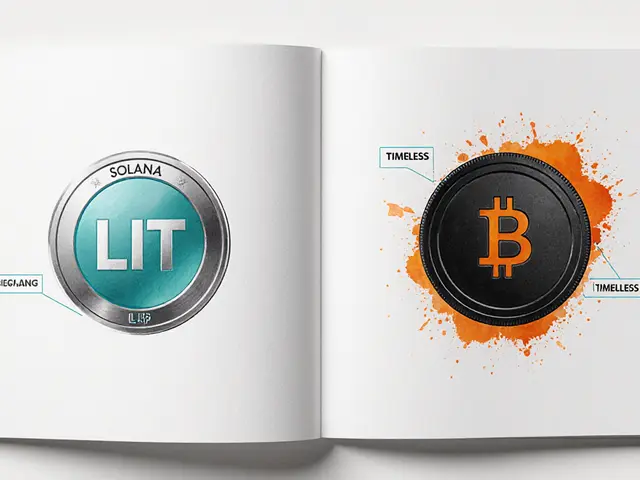Crypto Exchange Licensing Cost Estimator
Estimated Licensing Costs
Initial Capital Requirement:
Annual Regulatory Fees:
Additional Operational Costs:
These estimates are based on current Turkish regulations and may vary depending on business specifics.
In July2025, Turkish regulators pulled the plug on 46 unlicensed crypto platforms, leaving thousands of traders scrambling for a legal alternative. That decisive move signaled the country’s commitment to a formal licensing regime for crypto‑asset service providers (CASPs). If you’re eyeing the Turkish market-whether as a local startup or a foreign exchange looking to set up a foothold-understanding the new framework is non‑negotiable.
Quick Takeaways
- Licensing is handled by the Capital Markets Board (Capital Markets Board (CMB) Turkey’s securities regulator responsible for granting crypto‑exchange licenses).
- Minimum paid‑in capital: 150millionTRY for exchanges, 500millionTRY for custodial services.
- Annual fee: 1% of gross revenue to the CMB plus 1% to TUBITAK.
- AML/KYC trigger: transactions over 15,000TRY must be fully verified.
- Foreign operators can’t actively market or maintain a physical office in Turkey.
Legal Foundations: Communiqué I & II
The regime rests on two official communiqués published in the Official Gazette Turkey’s legal publication where new regulations are announced on 13March2025. CommuniquéI (III‑35/B.1) lays out the definition of a CASP, ownership rules, and the overarching principles. CommuniquéII (III‑35/B.2) dives into operational details: capital adequacy, risk‑management obligations, and reporting procedures. Together they provide a “full‑stack” licensing model that mirrors the EU’s MiCA but with tougher capital thresholds.
Who Issues the License?
The Capital Markets Board (CMB) Turkey’s primary financial regulator for securities and crypto‑asset services evaluates applications, runs fit‑and‑proper tests, and ultimately issues the license. The process involves:
- Submission of a corporate restructuring plan that converts the applicant into a joint‑stock company (pay‑in shares must be cash‑based and registered by name).
- Proof of the minimum paid‑in capital (150millionTRY for exchanges, 500millionTRY for custodians).
- Documentation of internal controls, cybersecurity safeguards, and audit frameworks.
- Background checks on founders, board members, and senior managers-both financial integrity and criminal‑record screenings.
- Approval by the CMB’s Licensing Committee, followed by a registration in the “Financial Services Registry”.
Capital & Financial Requirements
Capital is the most visible hurdle. As of 2025, the required paid‑in capital equals roughly $4.1millionUSD for an exchange and $13.7millionUSD for a custodial service. Compared with Singapore’s S$1million threshold or the UK’s £1million requirement, Turkey sits in the mid‑range-high enough to deter fly‑by‑night operators but not prohibitive for serious players.
Beyond the upfront capital, the law imposes an annual fee of 1% of total income (excluding interest) payable to the CMB and an additional 1% to the Scientific and Technological Research Council of Turkey (TUBITAK) government agency that funds research and innovation projects. The combined 2% revenue charge is effectively a “regulatory tax” that scales with business size.
Ownership, Management & Fit‑and‑Proper Tests
Applicants must demonstrate:
- Clean legal records for all shareholders holding >5% of equity.
- At least one Turkish resident director with a minimum of three years’ experience in finance or technology.
- Independent audit committees and a designated compliance officer who reports directly to the board.
MASAK, Turkey’s Financial Crimes Investigation Board (MASAK Turkey’s AML and counter‑terrorism financing authority), conducts its own fit‑and‑proper assessment, focusing on the applicant’s AML/KYC track record.
AML/KYC Obligations: What You Need to Know
Every transaction over 15,000TRY (~$425USD) triggers mandatory identity verification. The required data includes full name, national ID, address, and source‑of‑funds declaration. In addition:
- Real‑time monitoring systems must flag suspicious patterns and report them within 24hours to MASAK.
- All transaction logs-including canceled or unexecuted orders-must be stored for at least five years.
- MASAK can freeze both crypto wallets and linked bank accounts without a prior court order if it suspects money‑laundering activity.
Failure to comply can lead to fines up to 5% of annual revenue, license suspension, or outright revocation.

Operational Costs Beyond Capital
While the capital floor is clear, the day‑to‑day expense profile is more nuanced:
- Compliance infrastructure: Dedicated AML/KYC teams (usually 3‑5 analysts for a midsize exchange) and a technology stack costing $200‑$300k per year.
- Risk‑management: Price‑monitoring tools that detect wash‑trading or spoofing, typically licensed from third‑party vendors.
- Banking integration: Because the Central Bank of Turkey (TCMB) still bans crypto for payments, exchanges must partner with banks that allow fiat‑on‑ramp services, often incurring higher transaction fees.
- Audit & reporting: Annual external audits required by the CMB, averaging $100k for a compliant entity.
Foreign Participation: Restrictions You Can’t Ignore
Non‑resident CASPs may register a Turkish subsidiary but are barred from active marketing within Turkey. The law also requires a local physical presence for any customer‑facing operation. In practice, this means a foreign exchange must set up a Turkish joint‑stock company, hire resident directors, and maintain an office-often a co‑working space-to satisfy the “local presence” clause.
Compared with Malta’s open‑door policy that encourages offshore entities, Turkey’s stance is more protectionist, aiming to keep capital and data inside its borders.
How Turkey Stacks Up: A Quick Comparison
| Jurisdiction | Licensing Authority | Min. Paid‑in Capital (USD) | Annual Fee (% of Revenue) | Foreign Marketing Allowed? |
|---|---|---|---|---|
| Turkey | Capital Markets Board (CMB) | ~4.1M (exchange) | 2% (CMB+TUBITAK) | No (local presence required) |
| Singapore | Monetary Authority of Singapore (MAS) | ~1.2M | 0.5% (regulatory levy) | Yes (subject to AML vetting) |
| United Kingdom | Financial Conduct Authority (FCA) | ~1.0M | 1% (FCA fee) | Yes |
| Estonia | Financial Intelligence Unit (FIU) | ~0.8M | 1% (license fee) | Yes |
Application Timeline & Practical Tips
Preparing a solid license application typically takes 6‑12months. Here’s a roadmap most applicants follow:
- Corporate restructuring: Convert to a joint‑stock company, allocate the required paid‑in capital, and open a Turkish corporate bank account.
- Compliance platform selection: Choose a KYC/AML vendor with native Turkish language support and the ability to generate MASAK‑compatible reports.
- Documentation pack: Draft internal policies (cybersecurity, audit, risk‑management), board minutes, and shareholder declarations.
- Legal review: Engage a Istanbul‑based fintech law firm that can produce bilingual submission forms and liaise with the CMB.
- Submission & review: File the application via the CMB’s e‑portal, respond to any clarification requests within the stipulated 30‑day window.
- Post‑approval setup: Implement the mandated transaction‑recording system, train staff on MASAK reporting, and establish a local office.
Skipping any of these steps-especially the bilingual legal review-almost guarantees a rejection or a prolonged back‑and‑forth with regulators.
Risks, Enforcement & Market Realities
Since the July2025 crackdown, the CMB has issued warnings to licensed operators that miss even a single AML filing deadline. Penalties range from 50,000TRY fines to full license revocation. Moreover, MASAK’s authority to freeze assets without a court order adds a layer of operational risk not seen in many European jurisdictions.
On the upside, being licensed dramatically boosts user trust. Exchanges that secured a CMB license report a 20‑30% increase in daily active users within the first six months, largely because Turkish traders now prefer platforms that guarantee asset protection under national law.
Future Outlook
The regulatory landscape is still evolving. Analysts expect possible adjustments to foreign‑operator restrictions if international pressure mounts, and a potential reduction in capital thresholds for non‑custodial exchanges. Keeping tabs on CMB circulars and MASAK bulletins will be essential for staying compliant.
Frequently Asked Questions
What is the minimum capital requirement for a crypto exchange in Turkey?
The law mandates at least 150million Turkish Lira (about $4.1millionUSD) in paid‑in capital for an exchange. Custodial service providers need 500millionTRY.
Which authority grants crypto‑exchange licenses in Turkey?
The Capital Markets Board (CMB) is the sole licensing body for crypto‑asset service providers.
Can a foreign crypto exchange operate in Turkey?
Foreign firms can set up a Turkish subsidiary, but they cannot market directly to Turkish users and must maintain a physical office in the country.
What are the ongoing fees after obtaining a license?
Licensees pay 1% of gross revenue to the CMB and another 1% to TUBITAK each year, plus costs for audits, compliance staff, and technology.
How does Turkey’s AML requirement differ from other countries?
Turkey sets a low transaction threshold (15,000TRY) for mandatory KYC and empowers MASAK to freeze assets without a court order, which is stricter than many European regimes.






raghavan veera
9 January, 2025 . 05:03 AM
When you look at the 150 million TRY capital floor, it feels like the regulators are trying to sift the serious from the speculative, almost like a philosophical gatekeeper for the crypto realm in Turkey.
Jared Carline
10 January, 2025 . 21:22 PM
It is evident that the CMB's recent licensing framework imposes an unnecessary bureaucratic burden, thereby stifling innovation and favoring entrenched domestic interests.
Danielle Thompson
12 January, 2025 . 13:42 PM
Great breakdown! 👍
Eric Levesque
14 January, 2025 . 06:01 AM
Those capital numbers are no joke – you need serious backing before you even think about entering the market.
alex demaisip
15 January, 2025 . 22:20 PM
From a regulatory compliance perspective, the stipulated 2 % revenue levy effectively functions as a variable cost of capital, aligning the risk‑adjusted return expectations of the CMB with the operational scalability of the exchange; failure to internalize this fiscal elasticity will inevitably erode net margins.
Elmer Detres
17 January, 2025 . 14:39 PM
Solid point on the capital hurdle – it forces a proper risk‑management framework, and the compliance team you’ll need can’t be an afterthought. 😊
Tony Young
19 January, 2025 . 06:58 AM
Let me paint the picture for anyone still on the fence: you walk into a CMB office with a hefty stack of documents, and the first thing the officer asks is whether you’ve allocated the full 150 million TRY in liquid assets. The answer, of course, is a resounding yes, because without that, the whole application is tossed aside like yesterday’s news. Then comes the fit‑and‑proper test, where every founder’s background is dissected with a scalpel – any hint of a prior sanction and you’re out.
Next, you’ll need a Turkish‑resident director with at least three years of fintech experience; that’s not merely a box‑tick, it’s a safeguard against governance failures.
Compliance isn’t a department; it’s an ecosystem of AML/KYC analysts, real‑time transaction monitors, and a dedicated tech stack that can parse hundreds of thousands of trades daily.
MASAK’s 24‑hour reporting window means you must have automated alerts ready from day one, otherwise expect hefty fines.
The annual 2 % revenue fee, split between CMB and TUBITAK, scales with your growth, turning regulatory cost into a proportional shareholder of your success.
Banking integration remains a pain point – the Central Bank still bars direct crypto payments, so you’ll need a partner willing to bridge fiat on‑ramps, often at premium rates.
Operationally, budgeting $200‑$300 k for compliance technology plus $100 k for annual audits is the baseline, not an optional expense.
Foreign firms must set up a joint‑stock company, hire local staff, and maintain a physical office; there’s no loophole for remote‑only operations.
All of this culminates in an average 6‑12 month timeline, assuming you have a seasoned Istanbul‑based law firm to translate the bilingual paperwork and smooth the dialogue with regulators.
In short, the barrier is high, but the payoff is a license that instantly boosts user trust, often translating into a 20‑30 % bump in daily active users within the first half‑year. 🌟
Fiona Padrutt
20 January, 2025 . 23:18 PM
Turkey’s push for a strong crypto framework proves the nation won’t let foreign giants steamroll the market – it’s about protecting our own economy.
Briana Holtsnider
22 January, 2025 . 15:37 PM
The enforcement regime described feels excessively draconian; freezing wallets without court oversight undermines due process and could drive legitimate users toward unregulated platforms.
Corrie Moxon
24 January, 2025 . 07:56 AM
Seeing the numbers, I think anyone willing to put in the work can actually thrive – the market’s still hungry for trustworthy services.
Jeff Carson
26 January, 2025 . 00:15 AM
Don’t forget that the local banking landscape is fragmented; partnering with a bank that supports crypto‑fiat on‑ramps can shave months off your go‑live schedule, especially if the bank already has a solid compliance track record.
Anne Zaya
27 January, 2025 . 16:34 PM
Honestly, the whole thing sounds like a lot, but if you’re serious it’s doable.
Emma Szabo
29 January, 2025 . 08:54 AM
Picture this: a sleek, Turkish‑branded exchange, neon‑lit office in Istanbul, and a compliance dashboard that glows like a sci‑fi cockpit – that’s the vibe you can sell once you clear the regulatory hurdles. 🌈🚀
Fiona Lam
31 January, 2025 . 01:13 AM
These licensing rules are just a power play, trying to keep the market under tight national control.
OLAOLUWAPO SANDA
1 February, 2025 . 17:32 PM
Sure, but if they keep tightening, foreign investors will just walk away.
Alex Yepes
3 February, 2025 . 09:51 AM
In evaluating the comparative regulatory matrices, it becomes evident that Turkey’s capital requisites supersede those of Singapore and the United Kingdom, thereby engendering a heightened entry barrier proportional to the anticipated market share acquisition.
Sumedha Nag
5 February, 2025 . 02:10 AM
Maybe, but the high cap could also signal confidence in the market’s long‑term viability, contrary to what some skeptics claim.
Holly Harrar
6 February, 2025 . 18:30 PM
i think its good but alot of rules can be a bit overkill for new startups.
Vijay Kumar
8 February, 2025 . 10:49 AM
Adding to that, the compliance tech stack you choose should support Turkish language parsing out of the box to avoid costly retrofits later.
Edgardo Rodriguez
10 February, 2025 . 03:08 AM
Considering, the broader economic context, one must ask, does the imposition of such stringent capital thresholds truly foster market stability, or does it merely construct an exclusive enclave of well‑funded entities, thereby marginalizing innovative startups, which, in many cases, serve as the catalyst for disruptive advancement, while simultaneously imposing a fiscal burden that could deter foreign direct investment, which, as we know, is a crucial component of economic diversification, especially in emerging markets, and thus, the policy’s efficacy remains a subject of nuanced debate.
mudassir khan
11 February, 2025 . 19:27 PM
In truth, the regulator’s heavy‑handed approach, exemplified by the immediate freezing powers, is a textbook example of overreach; such mechanisms, while ostensibly aimed at preventing illicit activity, risk alienating legitimate participants and eroding confidence in the entire financial ecosystem.
Bianca Giagante
13 February, 2025 . 11:46 AM
It’s essential to strike a balance between security and accessibility; otherwise, we risk stifling the very innovation these regulations aim to protect.
Andrew Else
15 February, 2025 . 04:06 AM
Oh great, another bureaucratic maze – just what the crypto world needed.
Susan Brindle Kerr
16 February, 2025 . 20:25 PM
One cannot help but marvel at the theatricality of this entire licensing saga; it feels as though we are actors on a stage, performing an endless drama of compliance, capital, and control, while the audience – the genuine users – await a resolution that may never arrive.
Prince Chaudhary
18 February, 2025 . 12:44 PM
Let’s keep the conversation constructive – the effort to build a solid framework is commendable, and with the right support, it can lead to a thriving, secure market.